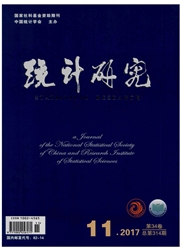

 中文摘要:
中文摘要:
老龄化尤其是高龄失能老人增多对我国现有的以疾病治疗为核心的健康保障体系提出了挑战。本文基于CLHLS2011年数据采用结构方程模型的估计结果表明,家庭的照料护理支出显著提高了老人的健康自评、健康他评、生活满意度等,并且还降低了老人的小病发病率、患慢性病种类数以及两年内的患重病次数;而家庭的医疗费用支出则显著降低了老人对自身健康水平和生活状况的主观评价,对降低老人患小病、重病和慢性病等也没有贡献。相比医疗支出,照护支出具有更优的健康产出效率,并且通过增进老人的身体功能和生活自理能力、提高老人主观健康评价等途径起到更积极的健康促进作用。最后建议我国应将更多的健康支出用于照料护理,建立基于家庭和社区的老人照护体系。
 英文摘要:
英文摘要:
The population aging and increasing of the disabled elders will be a great challenge to the current health care system which focus on medical treatment. This article uses the CLHL data in 2012 and the Structural Equation Models,and the estimation results indicate that the long-term care expenditure significantly improves the self-evaluated health status,others-evaluated health status and life satisfaction of the elders. Moreover,it also can reduce the incidence of the minor illnesses,chronic diseases and serious diseases. And the medical treatment expenditure has the opposite effect. Compared to the medical treatment expenditure,the long-term care expenditure has a better production efficiency,and produces much more active function on the elders' health promotion. This article suggests that China should use more health expenditure on the long-term care for the elders,and the long-term care system should be based on the family and their community.
 同期刊论文项目
同期刊论文项目
 同项目期刊论文
同项目期刊论文
 期刊信息
期刊信息
